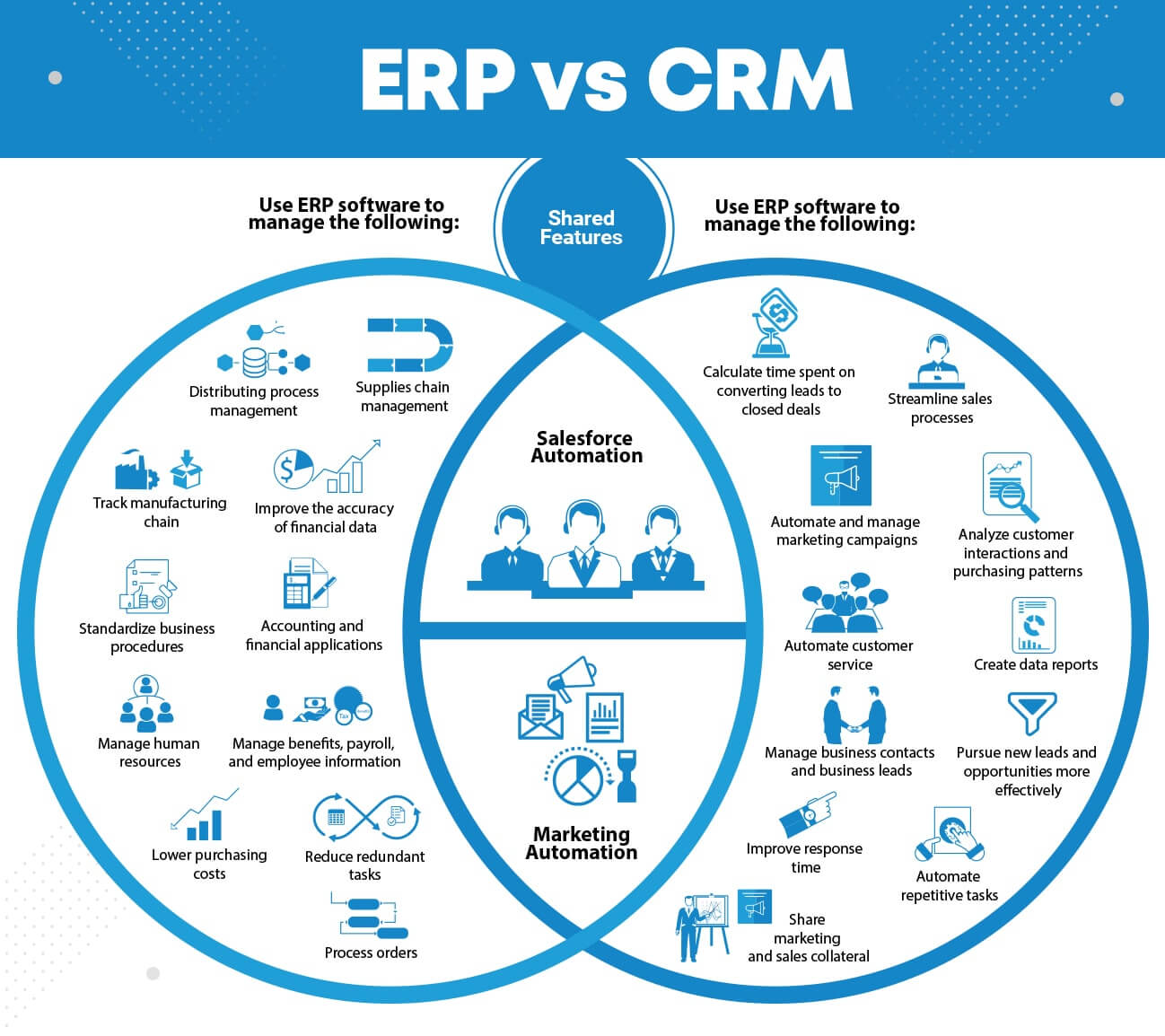Erp vs crm: how to decide which software you need
When it comes to managing your business, choosing the right software can make all the difference. Two popular options that often come up in discussions are Enterprise Resource Planning (ERP) and Customer Relationship Management (CRM) systems. Both are powerful tools that can help streamline your operations and improve efficiency, but they serve different purposes.
ERP vs CRM: How to Decide Which Software You Need
Let's start with ERP. Enterprise Resource Planning software is designed to integrate various aspects of your business, such as finance, manufacturing, inventory, and human resources, into a centralized system. It provides a comprehensive view of your operations, helping you make informed decisions and optimize resources.
If your business involves complex processes and involves multiple departments, ERP can be a game-changer. With ERP, you can automate tasks, reduce manual errors, and improve collaboration among teams. It provides real-time information, allowing you to track inventory, manage orders, and monitor production, all in one place.
On the other hand, CRM software focuses on managing customer relationships and improving sales processes. It helps you centralize and organize customer data, track interactions, and manage leads and opportunities. With CRM, you can automate sales and marketing activities, enhance customer service, and gain valuable insights into customer behavior.
CRM vs ERP | A Complete Comparison

CRM is particularly beneficial for businesses that heavily rely on sales and marketing, as it improves lead generation, tracks customer interactions, and streamlines the sales pipeline. It helps you nurture customer relationships by providing personalized experiences, ensuring customer satisfaction, and increasing customer loyalty.
So, how do you decide which software is right for your business? To make an informed choice, you need to assess your business needs, size, and industry requirements. If you are primarily focused on streamlining internal processes, optimizing resources, and improving productivity across various departments, ERP might be the way to go.
On the other hand, if your primary goal is to enhance customer relationships, boost sales, and improve marketing efforts, CRM could be the better option. However, many businesses find value in implementing both ERP and CRM systems, as they complement each other and provide a holistic view of the organization.
Ultimately, the decision depends on the unique needs and goals of your business. Taking the time to evaluate your requirements and understand the benefits each software offers will help you make a well-informed decision.
Whichever software you choose, implementing the right solution can have a significant impact on your business. It can help you increase productivity, improve customer satisfaction, and drive growth. Investing in a reliable and user-friendly software can be a game-changer for your business.
Remember, choosing the right software is just the first step. To fully leverage its potential, it is crucial to train your teams, customize the software to fit your specific needs, and regularly update and maintain it.
In conclusion, evaluating the differences between ERP and CRM is essential for making an informed decision about which software is best suited for your business. So, take the time to assess your needs, consider the benefits of each system, and make a choice that aligns with your goals. With the right software in place, you can propel your business towards success and stay ahead of the competition.